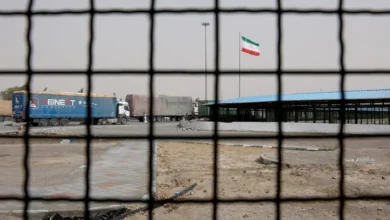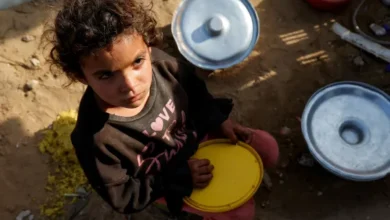Saudi Arabia makes significant progress cutting emissions in tourism, new report says

A new report measuring the environmental impact of tourism shows that Saudi Arabia has made significant progress in a ten-year period, a positive sign for a sector that the Kingdom is investing close to $800 billion in.
As the country looks to attract travelers and diversify its oil-dependent economy with new projects and experiences, “… we’re in a better position to say, how can we do this really well and we want to do this sustainably,” World Travel and Tourism Council CEO Julia Simpson told Al Arabiya English during a talk with reporters in Riyadh.
Launched on the sidelines of the Future Investment Initiative (FII) by Saudi Tourism Minister Ahmed al-Khateeb and the WTTC, the report cites specific figures for the first time in over 30 years.
Gloria Guevara, a chief advisor to the minister, said sustainability was “priority” for the Kingdom.
The Kingdom is home to the holiest sites in Islam, as a result of which religious tourism has long been flourishing here.
Guevara said Saudi Arabia had made “a lot of progress” in the last five years to develop the sector, something which was reflected in the latest report tracking a nine-year period prior to COVID-19 in 2020.
“Every single entity [in Saudi Arabia] is committed to sustainability,” Geuvara said.
As Saudi Arabia’s tourism industry grows and people flock to the Gulf nation for its culture and landscape, al-Khateeb said the Kingdom was committed to taking a sustainable path, “not only for the next 20 years, but for the next century and beyond.”
Saudi Arabia’s Sustainable Tourism Global Center (STGC) team is engaging with young travelers – between 18 and 25 years old – to garner their views on sustainable means of travel and to provide a platform to engage with their thoughts.
The announcement regarding STGC was made by Saudi Crown Prince Mohammed bin Salman during the Saudi Green Initiative in October 2021, which is currently overseen by al-Khateeb. The organization launched the Global Solutions Hub (GSH) on October 10 at the MENA Climate Week to invest in research and help quantify the impact that tourism has on the Kingdom and other parts of the world.
A regional concern
The Middle East uses the highest share of fossil fuels to meet its energy requirements in the tourism sector. It also comes a close second, behind Africa, for being the most energy-intensive region per unit of activity, in the report.
Qatar, Saudi Arabia and Turkey are among the countries with the highest decline in emission intensity from travel and tourism. Estonia, China and Tanzania took the top three spots. .
Some of the key findings of the report, which took three years to compile, are expected to help lay a roadmap for the Kingdom’s tourism projects and help more mature tourist destinations to evaluate their environmental impact on the world.
In partnership with Oxford Economics, the report will be released annually, in an attempt to track global emissions from tourism and help ignite solutions and recognition around a shared framework.
“For years, the travel and tourism sector has struggled to measure its carbon footprint. For the first time, we not only have enough data to quantify our global emissions, but a framework to monitor them every year,” the report said.
Air travel was identified as a key contributor to emissions and the report called for a cohesive partnership between the two sectors to mitigate its negative effects.
The WTTC urged governments to incentivize the production of sustainable aviation fuels (SAF) and set ambitious targets to produce adequate quantities to allow the sector to reach its net-zero goal by 2050.
Travel and tourism account for 10 percent of the global GDP and one in 11 jobs as of 2019. It also accounts for 8 percent of carbon emissions worldwide. Between 2010 and 2019, absolute greenhouse gas emissions from the sector had risen at an average rate of 2.5 percent a year, the report said.
“Our research highlights the consistent decline of emissions intensity of travel and tourism over the last decade. Whilst the sector’s GDP growth averaged 4.3 percent annually, emissions only grew by 2.5 percent annually between 2010-2019. Still, the continued commitment to achieve net zero emissions for the travel and tourism sector has never been more important,” al-Khateeb said.
“We firmly believe travel and tourism are part of the solution and that is why Saudi Arabia has taken a leading role to accelerate and track this change to promote sustainability across the sector, protect nature and support communities,” he said.










